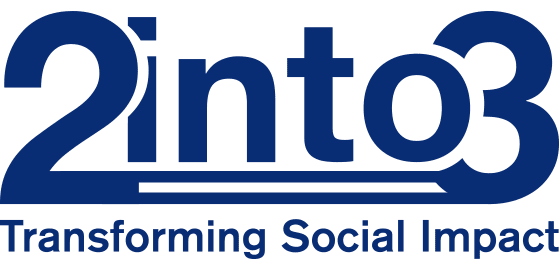5 Reasons to Champion DEI – Even as Others Backtrack
Written by Sheena Horgan, Director of Advisory Services, 2into3.
Embracing Diversity, Equity and Inclusivity (DEI) in organisations has become increasingly recognised as not only a moral imperative but also a strategic advantage [1]. But don’t take my word for it, here’s five evidence-based reasons why DEI matters.
1. Enhanced Innovation and Creativity
Diverse teams bring diverse experiences and thinking. Consequently, this fosters creativity and innovation, which in turn facilitates superior problem solving [2].
2. Improved Financial Performance
There’s a proven correlation between diverse leadership and financial performance as companies in the top quartile for gender and racial diversity are statistically more likely to outperform their peers on profitability [3].
3. Attraction and Retention of Talent
Organisations that commit to DEI can be more attractive to a broader range of candidates, who, particularly Millennials and Gen Z, prioritise working for employers that demonstrate a commitment to social responsibility and inclusivity. Employees value diversity and inclusivity in their workplace, and it impacts talent attraction and retention [4].
4. Enhanced Employee Engagement and Satisfaction
Inclusivity is instrumental in employee engagement and therefore enhancing workplace satisfaction and productivity. The sense of belonging directly translates to job satisfaction, and moreover, this in turn can positively impact productivity and loyalty, thereby increasing outputs and reducing talent churn and the cost of recruitment [5].
5. Better Decision Making
Diverse teams are shown to make better decisions because they consider a wider range of perspectives and options which can lead to improved outcomes in business strategy and operations [6].
The Risks of Backtracking on DEI
As an advocate of social impact, of course I’d laud that DEI is important, but for those who prefer an economic argument, as the research here shows, DEI also leads to competitive advantage with substantial benefits across various dimensions of organisational performance.
Which is why Accenture’s recent move away from DEI is a surprising one, ”Accenture scraps diversity and inclusion goals, memo says”. Not just because it’s a management consultancy that depends on the strategic thinking and problem-solving competencies of its people. Or, because it relies on its people’s commitment to Accenture over the competition, so talent acquisition and retention is critical. But because it smacks of hypocrisy flying in the face of its own research, reports, manifestos and PR over the last few years. For example, Accenture (2020), “Getting to Equal 2020: How to Make Diversity and Inclusion a Reality”, Accenture (2018), “When She Rises, We All Rise: Advancing Gender Equality in the Workplace” and Accenture (2019), “The Inclusion Imperative: How to Build a Culture of Belonging”.
I get that the rationale is a reaction to a significant State-side sentiment shift. But whilst some organisations may be benching DEI (no doubt to resurrect it sometime in the future when the winds change), there are many who remain committed – quietly or vocally – to its principles and practices. And these organisations will need partners and advisors who can demonstrate a genuine shared commitment to these values.
And whilst the press release announcing the move cites “… a workplace free from bias, and a culture in which all our people are respected, feel a sense of belonging and have equal opportunity”, this is actually only part of a fuller text from the 2024 360° Value Report: Delivering Value From Every Angle | Accenture that goes on to say in the next paragraph: “We [Accenture] are committed to helping all our people thrive, which includes advancing inclusion and diversity for all genders; people of different races and ethnicities; persons with disabilities; neurodivergent individuals; lesbian, gay, bisexual, transgender, intersex and queer (LGBTIQ+) people; people from different cultures; people with different religious and faith-based traditions; and people from different age and social groups”.
The same report is peppered with mentions of DEI’s importance, including praising its network of 143,000 Allies in Action (as at August 31, 2024) “who advocate for cross-cultural inclusion, disability inclusion, neurodiversity, gender equality, mental health and well-being, racial and ethnic inclusion, and LGBTIQ+ inclusion”.
Championing social impact means advocating for DEI. Delivering DEI and delivering business success are not mutually exclusive – but DEI needs allies, not adversaries.
Footnotes
[1] EY (January 2025) DE&I Interventions that Deliver de-and-i-interventions-that-deliver.pdf
[2] Page, S. E. (2007). The Difference: How the Power of Diversity Creates Better Groups, Firms, Schools, and Societies. Princeton University Press. This book explains how diversity leads to superior problem-solving capabilities.
[3] McKinsey & Company (2020). Diversity wins: How inclusion matters.
[4] Reference: Deloitte (2017). The Radical Transformation of Diversity and Inclusion: The Millennial Influence.
[5] Gallup (2020). State of the Global Workplace: 2020 Report.
[6] Reference: Nemeth, C. J., & Staw, B. M. (1989). The Tradeoffs of Social Control and Innovation in Groups and Organizations. Social Psychology Quarterly, 52(3), 275-284.


